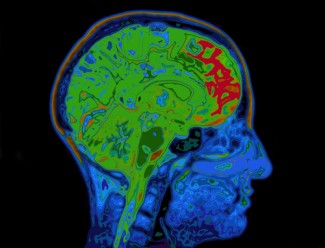Do you have a right to neural privacy? Linking of animal brains raises issue

Image from Shutterstock.
Just as new technology created issues of digital privacy, scientific experiments linking animal brains are raising new issues of neural privacy and legal responsibility.
Scientists at the Center for Neuroengineering at Duke University published studies Thursday in Scientific Reports in which they used electrodes to link the brains of monkeys and rats. The New York Times covered the studies and discussed the implications with Karen Rommelfanger, director of the Neuroethics Program at the Center for Ethics at Emory University.
In one experiment involving four rats, signals sent by brain electrodes are monitored on computer. If rats produce synchronized signals, they are rewarded with water. With training, the rats are able to synchronize their brains in response to one signal, and to produce unsynchronized activity in response to another. The collective response was correct more often than individual responses.
In monkey experiments, as many as three brain-linked monkeys learned to work together to control a virtual robotic arm.
Scientists say the studies suggest that human brains could someday be linked, making it possible for police officers to make collective decisions, surgeons to collectively operate, and video gamers to collectively play.
Rommelfanger says the possibilities raise many ethical issues, including: If a brain network commits a crime, who is guilty? If gamers’ brain signals are recorded as part of a playing network, how should the data be protected?
“I think that neural privacy is something we should worry about,” Rommelfanger told the Times.



